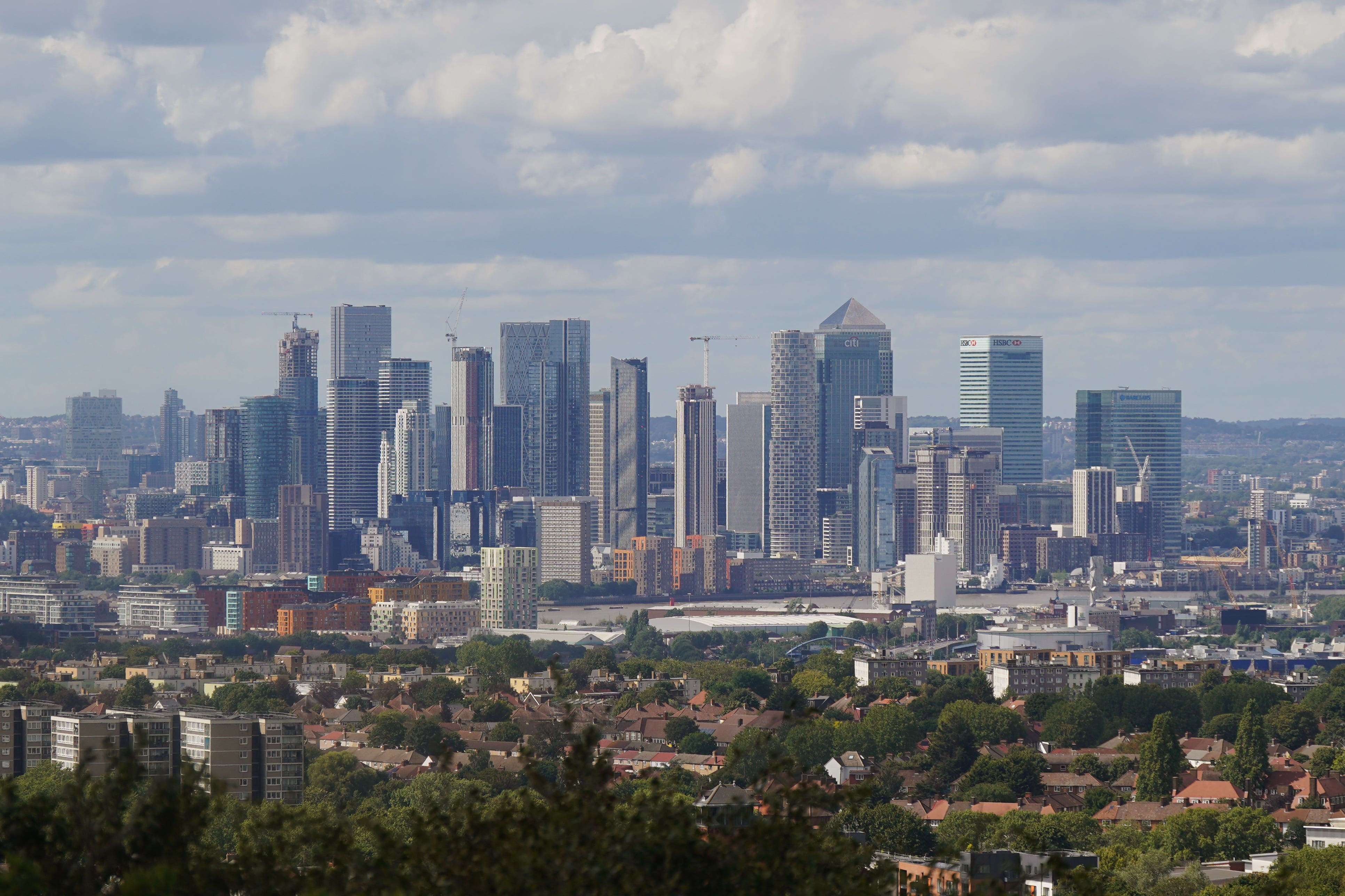- News
- Business
‘UK assets continue to hold up well in the wake of the Budget,’ said IG analyst Chris Beauchamp.
Jeremy CutlerThursday 27 November 2025 17:18 GMT The Budget continued to provoke debate with analysts welcoming the increased fiscal headroom delivered by the Chancellor but suggesting important questions remain unanswered (Yui Mok/PA) (PA Archive)
The Budget continued to provoke debate with analysts welcoming the increased fiscal headroom delivered by the Chancellor but suggesting important questions remain unanswered (Yui Mok/PA) (PA Archive)
For free real time breaking news alerts sent straight to your inbox sign up to our breaking news emails
Sign up to our free breaking news emails
Sign up to our free breaking news emails
 Email*SIGN UP
Email*SIGN UPI would like to be emailed about offers, events and updates from The Independent. Read our Privacy notice
The FTSE 100 paused for breath on Thursday after the drama of Wednesday’s Budget as US markets shut for Thanksgiving.
“UK assets continue to hold up well in the wake of the budget,” said IG analyst Chris Beauchamp, adding that “the day has been one of drift for global indices without US liquidity, but the rebound from last week’s lows remains intact”.
The FTSE 100 index closed up just 2.35 points at 9,693.93.
The FTSE 250 gained 205.95 points, 0.9%, at 22,091.47, and the AIM All-Share closed up 5.73 points, 0.8%, at 748.99.
Wednesday’s Budget continued to provoke debate with analysts welcoming the increased fiscal headroom delivered by the Chancellor but suggesting important questions remain unanswered.
Citi’s Callum McLaren-Stewart said: “The fiscal position was better than anticipated, and headroom against the fiscal rules was more than doubled, but the subsequent Budget was a tax-and-spend event which frontloaded expenditure increases while backloading revenue measures.
“The result is a fiscal forecast that pushes back important economic questions rather than answers them.”
More optimistically, Joshua Mahony at Scope Markets said that after the budget, there is “greater confidence” that the Bank of England will respond with a rate cut next month, with measures taken to bring down household costs helping to lower inflation expectations.
Despite the increased rate cut hopes, the pound held onto Wednesday’s gains against the dollar.
The pound was quoted higher at 1.3251 dollars at the time of the London equities close on Thursday, compared to 1.3232 dollars on Wednesday.
Banks continue to be seen as budget winners with Lloyds Banking Group, NatWest and Barclays up 3.0%, 2.3% and 1.7% – a third day of gains in a row.
St James’s Place, seen as a beneficiary from changes aimed at boosting contributions to stock and shares Isas, rose 2.0%.
USB noted the investment manager only offers investment Isas, with no income generated from cash holdings.
UBS also sees St James’s Place as a beneficiary of lower interest rates, helping reduce its cost of equity.
Bookmakers were mixed after outlining the scale of the financial hit from gaming duty changes in the Budget.
William Hill owner Evoke fell a further 4.1%, while Coral owner Entain declined 0.7%.
But Paddy Power owner Flutter Entertainment rose 2.2%.
Per Widerstrom, chief executive of Evoke, attacked the tax increases as “ill-thought-through, counter-productive, and highly damaging”.
Betting technology provider Playtech was the sector’s big winner, as it confirmed its 2026 guidance. Shares rose 8.6%.
In European equities on Thursday, the CAC 40 in Paris closed little changed, while the DAX 40 in Frankfurt gained 0.2%.
European Central Bank officials said a “broadly unchanged outlook” provided the basis for its decision to leave interest rates unchanged at its most recent meeting, despite acknowledging two-sided risks to inflation, according to minutes from October’s meeting.
Looking ahead, the ECB will maintain “full optionality” for future meetings and be “agile” in order to react quickly to the materialisation of risks or large shocks if necessary, the minutes said.
But officials are divided as to whether the rate-cutting cycle is over.
Some argued that the rate-cutting cycle had come to an end, since the current favourable outlook was likely to be maintained unless risks materialised.
But others felt it was important to remain “entirely open-minded” on the possible need for a further cut.
Financial markets in New York were closed for Thanksgiving Day.
The euro stood little changed at 1.1599 dollars on Thursday, against 1.1598 dollars on Wednesday.
Against the yen, the dollar was trading lower at 156.27 yen compared to 156.35 yen.
On London’s FTSE 250 Pennon advanced 4.5% after hailing a “strong return to profitability” driven by cost management and revenue growth.
The Exeter-based water utility swung to a pre-tax profit of £65.9 million for the six months to September 30 from a loss of £38.8 million a year before.
Revenue rose 25% to £658.1 million from £527.2 million a year ago.
“With a strong return to profitability and disciplined cost control, we are on track financially and growing sustainably,” chief executive Susan Davy said.
But Unite fell 3.5% after it warned financial 2026 adjusted earnings per share will fall 7% to 10% in financial 2026 year-on-year, reflecting lower occupancy, property activity and rising finance costs.
Panmure Liberum analyst Tim Leckie said that works out to 43p to 44.6p per share versus his previously downgraded 47p forward path, a “huge cut”.
Mr Leckie said there “is a sense of incoherency between the messaging that weakness is confined to a few cities and the new guidance”.
Elsewhere, Macfarlane rose 10%, as it said operations at its Pitreavie business are recovering as it reiterated recently reduced profit guidance.
The Glasgow-based packaging and labelling supplier expects results for 2025 to be in line with market expectations for full-year adjusted operating profit, which it put at £19.1 million.
Back in October, Macfarlane lowered its outlook, warning that full-year adjusted operating profit would be 20% to 25% below market expectations, which at the time were £24.7 million.
Macfarlane said operations at the Pitreavie business are recovering after a fatal incident there in October.
Brent oil was quoted at 63.28 dollars a barrel at the time of the London equities close on Thursday, up from 62.41 dollars late on Wednesday.
Gold was quoted at 4,153.66 dollars an ounce, down against 4,163.25 dollars.
Analysts at TD Economics said gold’s “meteoric rally” is taking a breather, but “further monetary easing, continued central bank buying activity, and ongoing geopolitical risks are likely to see the yellow metal test record highs again in 2026. Silver prices should follow suit”.
The biggest risers on the FTSE 100 were Persimmon, up 40.5p at 1,342.0p, Lloyds Banking Group, up 2.8p at 96.6p, Centrica, up 4.7p at 170.7p, NatWest Group, up 14.0p at 632.4p and St James’s Place, up 27.0p at 1,388.0p.
The biggest fallers on the FTSE 100 were Imperial Brands, down 77.0p at 3,200.0p, Burberry Group, down 24.0p at 1,173.5p, Rio Tinto, down 106.0p at 5,355.0p, 3i, down 50.0p at 3,196.0p and LondonMetric Property, down 2.8p at 187.6p.
Friday’s economic calendar has GDP data in Canada and CPI figures in France and Germany.
Friday’s UK corporate calendar has half-year results from Foresight Environmental Infrastructure.
– Contributed by Alliance News.



